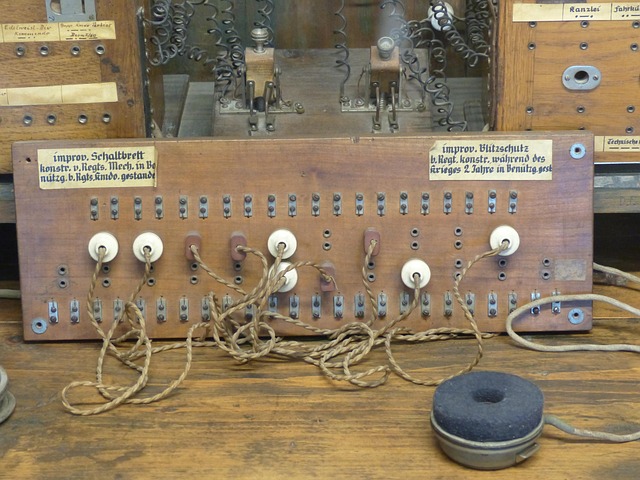In divorce cases involving jointly owned businesses, company asset mediation is essential for achieving a fair division of assets. Mediators employ specialized techniques to accurately value the business, considering financial records, market trends, and future projections. This collaborative process empowers former spouses to make informed decisions about ownership, assets, and liabilities while preserving the company's long-term viability. Effective communication, detailed financial analyses, and open dialogue ensure a just valuation and mutually agreeable solutions, minimizing disruption to business operations and maintaining future income streams. Legal documentation formalizes agreements, ensuring clarity and enforceability with the help of separate legal counsel.
Divorce can be particularly complex for business owners, presenting unique challenges when it comes to dividing assets and ensuring financial security. This article offers essential guidance through the mediation process, focusing on four key areas: business valuations, shared partnerships, protecting future income streams, and the role of company assets. By understanding these aspects, individuals can navigate their divorce settlement with fairness and confidence, ensuring a sustainable future despite life’s changes.
- Understanding Business Valuation in Divorce Mediation
- Navigating Shared Partnerships: A Path to Mutual Agreement
- Protecting Future Income Streams: Ensuring Financial Stability
- The Role of Company Assets in Divorce Settlement
- Strategies for Effective Communication During Mediation
- Post-Mediation: Building a Sustainable Future for Both Parties
Understanding Business Valuation in Divorce Mediation

In divorce mediation, business valuation plays a crucial role in ensuring a fair and equitable division of assets. When a couple owns a business together, determining its worth becomes a complex process. Professional mediators help navigate this challenge by employing various methods to assess the company’s value. This includes analyzing financial records, market trends, and future projections to arrive at a figure that reflects the business’s current and potential worth.
Understanding the complexities of business valuation is essential for both parties to reach a mutually agreeable outcome. During mediation, they can work together to decide how to distribute ownership, assets, and liabilities, ensuring that each individual receives a fair share while considering the long-term sustainability of the business. This process fosters a collaborative environment, allowing for a more harmonious divorce settlement, especially when substantial company assets are involved.
Navigating Shared Partnerships: A Path to Mutual Agreement

Divorce can be a complex process, especially for business owners who need to navigate the challenges of splitting assets and partnerships. In the context of company asset mediation, the goal is to reach a mutually agreeable solution that considers both parties’ interests and ensures a smooth transition. This often involves detailed discussions about business valuations and the future of shared ventures.
Effective mediation encourages open communication, enabling former spouses to explore various options. They can decide on the division of ownership, joint ventures, or even creating new partnerships. By focusing on collaborative problem-solving, they can avoid lengthy legal battles and reach a settlement that reflects their collective best interests, fostering a path forward with minimal disruption to ongoing business operations.
Protecting Future Income Streams: Ensuring Financial Stability

Protecting future income streams is a crucial aspect of divorce help for business owners, ensuring financial stability and a smooth transition. During mediation, it’s essential to discuss and agree on strategies that safeguard the ongoing revenue generation capabilities of the company. This includes evaluating and securing valuable assets such as intellectual property, customer lists, and brand recognition, which are often key contributors to future income.
Business partnerships can be complex during divorce proceedings, but with proper guidance, they can remain collaborative. Mediators can assist in negotiating fair agreements that maintain shared partnerships, preserving the company’s stability. By focusing on these aspects, business owners can navigate their divorce while minimizing disruptions to day-to-day operations and long-term financial prospects, ensuring a more secure future for both parties involved.
The Role of Company Assets in Divorce Settlement

In divorce proceedings, especially for business owners, understanding and negotiating the value of company assets is a critical aspect of reaching a fair settlement. These assets can include physical properties, intellectual property rights, inventory, equipment, and even customer lists—all of which hold significant financial and emotional value. During mediation, both parties work collaboratively with their respective lawyers to assess these assets impartially. This process involves detailed financial analyses, market research, and expert opinions to arrive at a just valuation.
Effective company asset mediation ensures that the business’s future stability is considered alongside immediate financial needs. It fosters an atmosphere of cooperation rather than conflict, allowing for creative solutions where both parties can preserve their interests while transitioning from a shared enterprise. By focusing on asset management, mediation can help maintain the productivity and income streams vital to the individual lives and livelihoods of the divorcing business owners.
Strategies for Effective Communication During Mediation

Effective communication is key during divorce mediation for business owners, especially when navigating complex issues like company asset division. The process demands clear and transparent dialogue to ensure a fair understanding of each partner’s needs and goals. Business owners should aim to openly discuss their financial situations, future plans, and concerns related to the company assets. This includes disclosing all relevant information about revenue streams, investments, and potential growth areas.
Mediation provides an opportunity for both parties to express their desires and work towards mutually agreeable solutions. By fostering a collaborative environment, business owners can navigate the challenges of shared partnerships and protect their future income streams. Active listening, empathy, and respect are essential tools to facilitate productive conversations, ensuring that the final mediation agreement reflects the best interests of both individuals moving forward.
Post-Mediation: Building a Sustainable Future for Both Parties

After successful mediation, creating a sustainable future for both parties involves several key steps. The first is to formalize the agreement reached during mediation through legally binding documents. This ensures that the terms regarding business valuations and asset distribution are clear and enforceable. Each party should have their own legal counsel to review and finalize these documents, protecting their interests and ensuring a fair outcome.
Building a sustainable future also means focusing on transition strategies. This includes developing plans for shared partnerships where appropriate, enabling both parties to maintain or grow their businesses independently while respecting each other’s roles. Protecting future income streams is crucial; both individuals should work with financial advisors to ensure tax efficiency and create new sources of revenue that do not conflict with the mediation agreement. Company asset mediation plays a pivotal role in achieving these goals, allowing for a structured and cooperative transition post-mediation.
